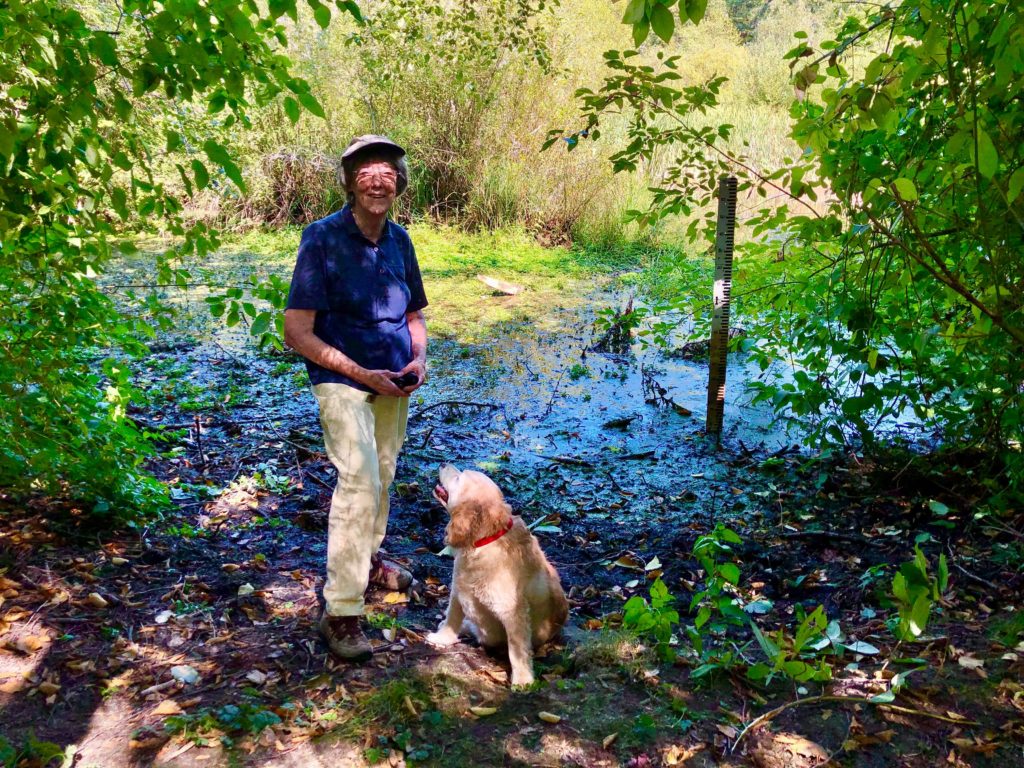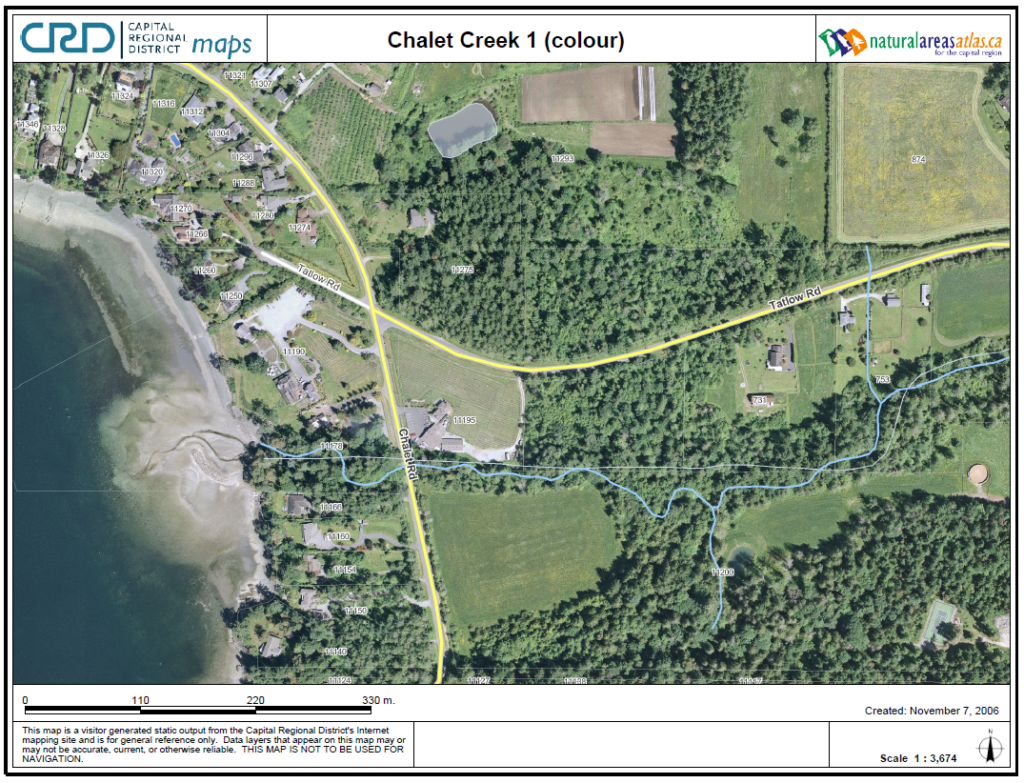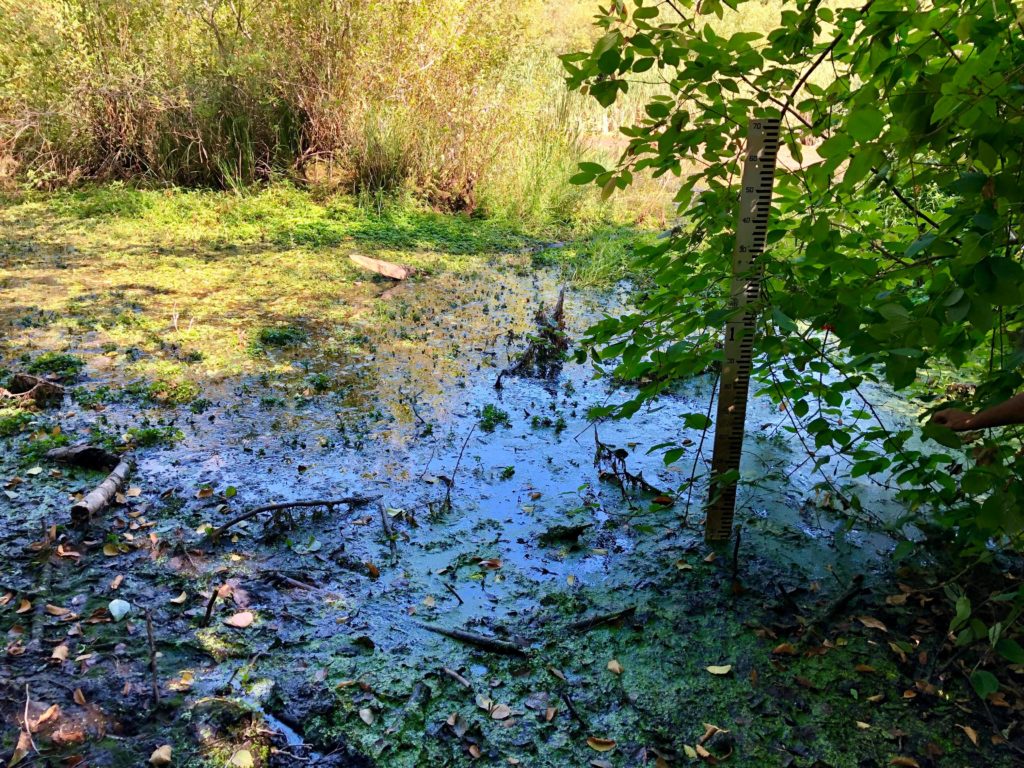Climate change is a growing global concern with significant implications for local aquatic ecosystems. As a result of shifted moisture regimes, streams within Greater Victoria are threatened by low summer flows, which can result in fish strandings (fish trapped in small, hot pools) and deaths. Peninsula Streams Society mitigates these effects by building the health and resiliency of our local self-sustaining populations of native freshwater species through restoration and conservation projects.
Supporting this work is long-time steward Mary Cully. In 2011, Mary happened to meet Peninsula Streams' Executive Coordinator Ian Bruce while walking her dog on the Gardner's Pond trail. Gardner's Pond is located in the almost 300 hectare Chalet (Tatlow) Creek watershed in North Saanich, which empties into Deep Cove. After a conversation about the pond and her observation of the fluctuating water levels, Peninsula Streams installed a staff gauge (essentially, a permanent waterproof measuring stick) in the pond so that the water level could be a ascertained at a glance.
Since then, Mary has been monitoring the water height in Gardner's Pond every week for the last ten years. In weeks where there is a significant amount of precipitation, she will often visit the pond multiple times to record the level. Although Mary has no formal environmental training, she has a keen interest in the health of the pond and the watershed, and monitoring the water level can be easily done while walking her dog. Mary says she is "happiest when out walking the trails and communing with nature at a grounds root level" and we are so grateful for her incredible commitment to helping us monitor the pond levels! After Mary records the date and pond height, she emails this information to Peninsula Streams staff, who record it in an Excel spreadsheet and are thusly able to produce graphs depicting the long-term fluctuation of the pond.


Mary’s extensive record of water levels from Gardner’s Pond provides insight into what local trends we may continue to see in the future as climate change accelerates. The data shows that, on average, winters are becoming wetter, with increasingly higher water levels recorded. In the summer, water levels appear to be falling. Continued monitoring of the pond's water level will help us determine the effects of climate change on the pond and adjacent creek and the implications on freshwater species that may result.

Due to agriculture and development, the landscape around Gardner's Pond and Chalet Creek has changed, resulting in little to no summer flow in the creek's lower reaches and reduced habitat for Coho salmon and Cutthroat trout. Since 2002, PSS has worked to restore the creek to a more natural state capable of supporting salmonids and other native species. Rock riffles and pools have been constructed, with large woody debris placed in the channel to ensure a healthy stream environment and mitigate the impacts of climate change. In addition, annual fry releases with students from Deep Cove School take place to help build salmon populations.
Local changes, such as those observed by PSS staff and local stream stewards like Mary Cully, highlight the significance and urgency of climate change. As moisture regimes continue to shift, Greater Victoria is confronted with new habitat dynamics and environmental challenges. With support from volunteers, PSS is responding to these issues by enhancing streams and waterways, collecting data to help inform restoration strategies, and monitoring habitats to track change over time. Drawing inspiration from stream keeper Mary Cully, now is the time for us to become environmental stewards, monitors, and caretakers in the face of climate change.
Subscribe to our newsletter if you want to volunteer with PSS to help with stream restoration and monitoring projects!
For more on recent climate projections, see the newly published IPCC report
For more information on local climate change impacts, see here, here and here
